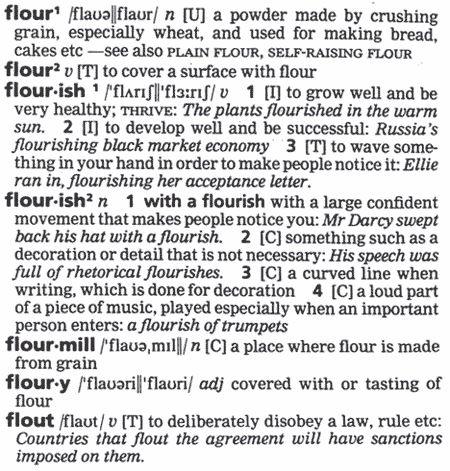
Once upon a time there was a language learning theory that suggested
you could learn while you were sleeping. Unfortunately few people suggest
that method today. Instead we talk about learning words in a context,
making mindmaps in order to learn words that are related or opposites.
You'll just have to find a way that suits you. Learning new words is
one of the most important parts of learning English.
English is a very rich language, which means that no matter how many words you know there are always more to learn. A very comforting thought! And a good dictionary comes in handy when you're reading a novel or writing an essay. So if you don't have one you need to buy it.
There are dictionaries on the net but most people prefer a book and turn to the ones on the net when they need additional information (new words, slang, phrases etc. may be difficult to find in a dictionary).
|
Check yourself, |
a. What kind of
information can be found in a dictionary? Look at the example
below and name three things that you are told about the word flour. d. What's the difference between a dictionary, an encyclopedia and a thesaurus? |

From Longman Dictionary of Contemporary English.
| Now that you've checked yourself it's time to start working, please save the papers in your portfolio: |
| Try different ways of learning words: |
| a. Make a mindmap with at least 10 words that are related. (Choose something that you're interested in: cars, philosophy, travelling or gardening.) |
| b. Look for synonyms (words that mean the same - more or less) to the word "surprised" and make a list. |
| c. How (and when) do you think you learn words? Comment. |